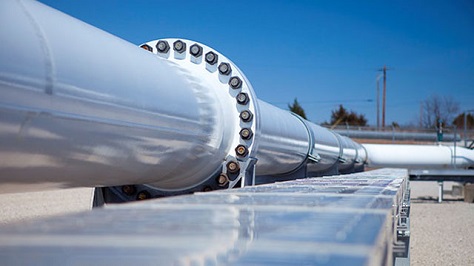In a debate on foreign policy late last month, each of Canada’s would-be prime ministers parried over the Obama administration’s long-delayed decision not to approve the Keystone XL pipeline. Both of prime minister Stephen Harper’s chief opponents targeted his approach to defending the Keystone XL project, and opposition leader Thomas Mulcair snapped at Harper’s tone altogether:![]()
“It’s an old saying that you catch more flies with honey than with vinegar,” Mulcair said. “You are pouring vinegar all over the Americans.” Harper said that he has worked “productively, overall” with Obama and the U.S. during his reign as prime minister.
But Keystone XL isn’t the only pipeline matter that the next Canadian government will face. It’s possibly not even the most important pipeline or even the most important issue as Canada prepares to join a crucial global summit on climate change regulations in Paris in November.
But for all the accomplishments of prime minister Stephen Harper in the past nine years (lower taxes, attempts at budget surpluses, aggressive pursuit of free trade agreements, a more relaxed attitude to federalism), it might be surprising that such an energy-friendly government of an Albertan prime minister who comes from a Conservative Party with deep roots in the Canadian west hasn’t overseen the full completion of any major pipeline projects.

But the next government will increasingly be faced with key decisions about whether to allow a handful of projects to proceed. Four major pipelines, in particular, have emerged in the campaign, some of which are more popular than others. While the Green Party is almost universally opposed to the projects and the Conservatives are almost universally supportive, each pipeline brings with it a bundle of environmental, economic and even cultural issues. In particular, the four pipelines have been an opportunity for the two center-left parties, Mulcair’s New Democratic Party (NDP) and Justin Trudeau’s Liberal Party to stake out contrasts against each other. Continue reading In Canada’s election, Keystone’s not the only controversial pipeline

